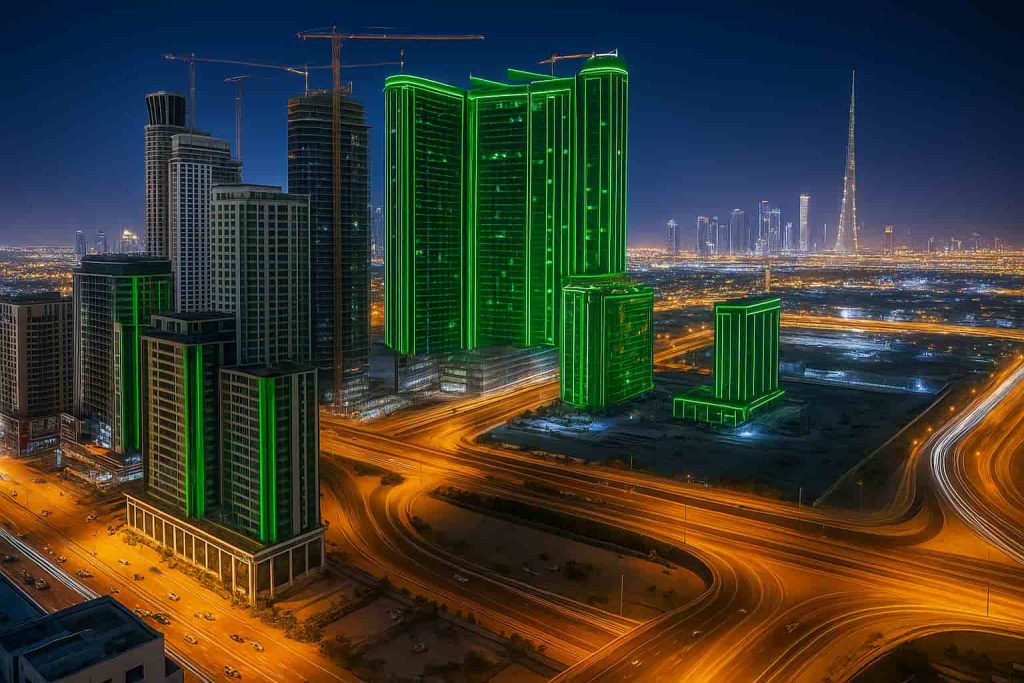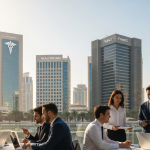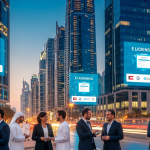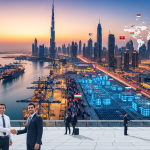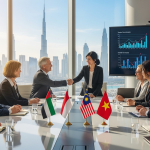Dubai’s Construction Sector Set for Growth with 2025 Policy Updates
Dubai’s construction industry, a cornerstone of the emirate’s economic diversification, is poised for significant growth in 2025 as the government rolls out updated policies aimed at attracting investment and streamlining project execution. With the city’s ambitious urban development plans and a robust pipeline of mega-projects, these new regulations are designed to bolster investor confidence, enhance sustainability, and ensure timely delivery of infrastructure initiatives. This article delves into the specifics of these policy changes, their implications for businesses, and the opportunities they create for stakeholders in the UAE’s construction landscape.
Key Policy Changes in Dubai’s Construction Sector for 2025
The Dubai government, through the Dubai Municipality and other regulatory bodies, has introduced a series of reforms to modernize the construction sector. These updates, announced in mid-2025, focus on simplifying licensing processes, incentivizing green building practices, and improving project oversight. The overarching goal is to align the sector with Dubai’s long-term vision of becoming a global hub for innovation and sustainable development.
Streamlined Licensing and Approvals
One of the most significant changes is the digitization and acceleration of licensing and permit approvals. The Dubai Municipality has enhanced its online portal to reduce processing times for construction permits by up to 30%. This move is expected to benefit developers and contractors by minimizing delays and cutting operational costs. Additionally, a unified platform now integrates approvals from multiple authorities, such as the Roads and Transport Authority (RTA) and Dubai Electricity and Water Authority (DEWA), ensuring a seamless experience for project initiators.
For businesses looking to navigate these updated processes, expert guidance is invaluable. Business Setup Services offered by firms like Persian Horizon can provide critical support in understanding and complying with the latest regulatory requirements.
Incentives for Sustainable Construction
Sustainability remains a core focus of Dubai’s urban planning strategy, and the 2025 policies reflect this priority. Developers who adopt green building standards, such as those outlined in the Dubai Green Building Regulations, are now eligible for tax breaks and reduced fees. These incentives aim to encourage the use of energy-efficient materials, renewable energy systems, and water conservation technologies in new projects.
Moreover, the government has mandated that all new large-scale projects submit environmental impact assessments as part of the approval process. This ensures that construction activities align with Dubai’s commitment to reducing carbon emissions and achieving net-zero targets by 2050. Companies specializing in sustainable construction solutions are likely to see increased demand as a result of these policies.
Enhanced Project Oversight and Compliance
To address challenges related to project delays and quality control, the new policies introduce stricter compliance measures and enhanced monitoring mechanisms. The Dubai Municipality has deployed advanced technologies, including drone surveillance and AI-driven analytics, to oversee construction sites in real-time. Penalties for non-compliance with safety standards or project timelines have also been increased, signaling the government’s intent to uphold high standards across the sector.
These measures are expected to improve accountability among contractors and developers, ultimately benefiting investors by reducing risks associated with project mismanagement. For those seeking to invest in Dubai’s construction boom, partnering with a trusted consultancy like Persian Horizon can provide insights into navigating these regulatory landscapes effectively.
Implications for Investment in Dubai’s Construction Sector
The updated policies are already generating significant interest among local and international investors. Dubai’s construction market, valued at billions of dollars annually, is a key driver of the emirate’s non-oil economy. With projects like the expansion of Al Maktoum International Airport, new residential communities, and commercial hubs in the pipeline, the sector offers diverse opportunities for capital deployment.
Attracting Foreign Direct Investment
The simplified licensing framework and sustainability incentives are particularly appealing to foreign investors who have historically faced bureaucratic hurdles in entering the UAE market. The government’s proactive approach to reducing red tape, coupled with Dubai’s strategic location as a gateway to the Middle East and Africa, positions the city as a prime destination for construction-related investments.
Moreover, the UAE’s stable political environment and robust legal framework provide an added layer of security for investors. Those interested in exploring these opportunities can benefit from tailored advice through Investment Consulting Services to identify high-potential projects and ensure compliance with local regulations.
Boosting Local SME Participation
Small and medium-sized enterprises (SMEs) in the construction sector are also set to gain from the new policies. The government has introduced preferential procurement guidelines that prioritize local contractors for certain public projects. This initiative aims to empower UAE-based businesses, foster economic diversification, and create jobs within the community.
For SMEs looking to expand their footprint in Dubai’s construction market, accessing the right resources and market intelligence is critical. The News section of Persian Horizon offers regular updates on sector trends and policy changes that can inform business strategies.
Opportunities for Partnerships and Collaboration
The policy updates also pave the way for increased collaboration between public and private entities. Public-private partnerships (PPPs) are being encouraged to fund and execute large-scale infrastructure projects. This model not only mitigates financial risks for the government but also allows private companies to leverage their expertise in delivering innovative solutions.
Additionally, the focus on sustainability has opened doors for partnerships with technology providers specializing in green construction solutions. From smart building systems to eco-friendly materials, there is a growing market for innovations that align with Dubai’s environmental goals. Businesses looking to forge such collaborations can explore tailored support through Services offered by industry experts.
Challenges to Anticipate in the Construction Sector
While the new policies bring numerous benefits, they also present challenges that stakeholders must address. The stricter compliance requirements, for instance, may increase operational costs for contractors who need to invest in training and technology to meet regulatory standards. Additionally, the emphasis on sustainability could pose a learning curve for companies unfamiliar with green building practices.
Another potential challenge is the competitive nature of Dubai’s construction market. With an influx of international players, local firms may need to upskill and innovate to maintain their market share. Accessing professional guidance on business growth strategies, such as those provided in the Blog section of Persian Horizon, can help companies stay ahead of the curve.
Future Outlook for Dubai’s Construction Industry
Looking ahead, Dubai’s construction sector is expected to maintain its upward trajectory, driven by the government’s commitment to infrastructure development and economic diversification. The emirate’s hosting of global events, coupled with its status as a business and tourism hub, will continue to fuel demand for residential, commercial, and hospitality projects.
The 2025 policy updates are a clear indication of Dubai’s intent to create a world-class construction ecosystem that prioritizes efficiency, sustainability, and innovation. For investors and businesses, this translates to a wealth of opportunities to participate in one of the most dynamic markets in the region.
Companies interested in capitalizing on this growth can explore options for acquiring existing businesses or establishing new ventures in the sector. Resources like Business Buying Services and Business Sales Services can facilitate such transactions with expert support.
Conclusion
Dubai’s construction sector is at a pivotal moment in 2025, with new policies setting the stage for unprecedented growth and investment. From streamlined licensing to sustainability incentives, these reforms are designed to enhance the emirate’s appeal as a global construction hub. While challenges such as compliance costs and market competition exist, the opportunities for investors, developers, and SMEs are substantial.
For those looking to enter or expand within this vibrant market, staying informed about regulatory changes and market trends is essential. Platforms offering Sales and Advertising Services can help businesses position themselves effectively in front of the right audience. Additionally, for international investors or entrepreneurs seeking to establish a foothold in Dubai, exploring Residency and Citizenship Services can provide a pathway to long-term engagement with the UAE market.
As Dubai continues to build its future, the construction sector remains a key pillar of its economic vision, offering a promising landscape for those ready to invest and innovate.
Source: Inspired by updates from Gulf News UAE

